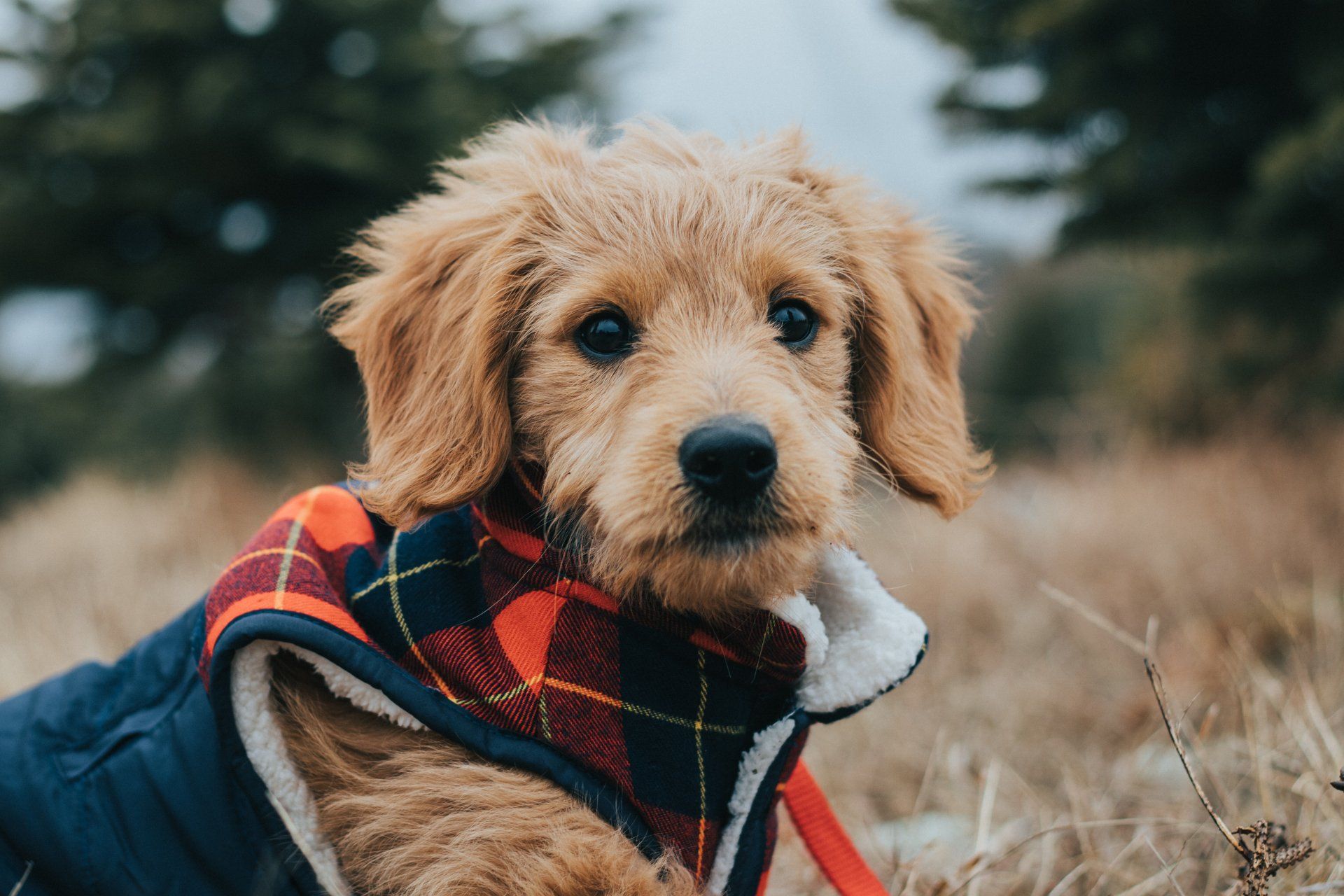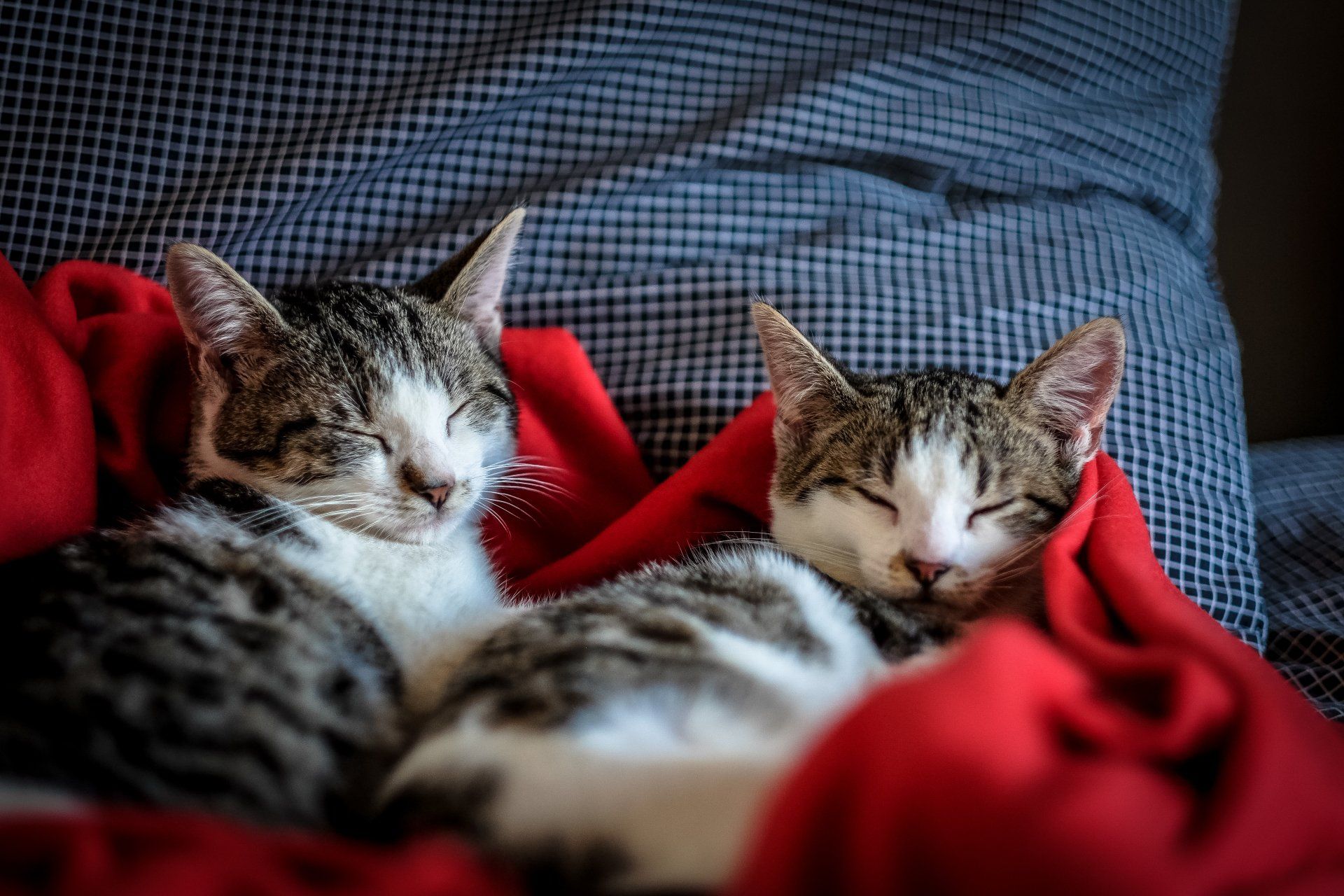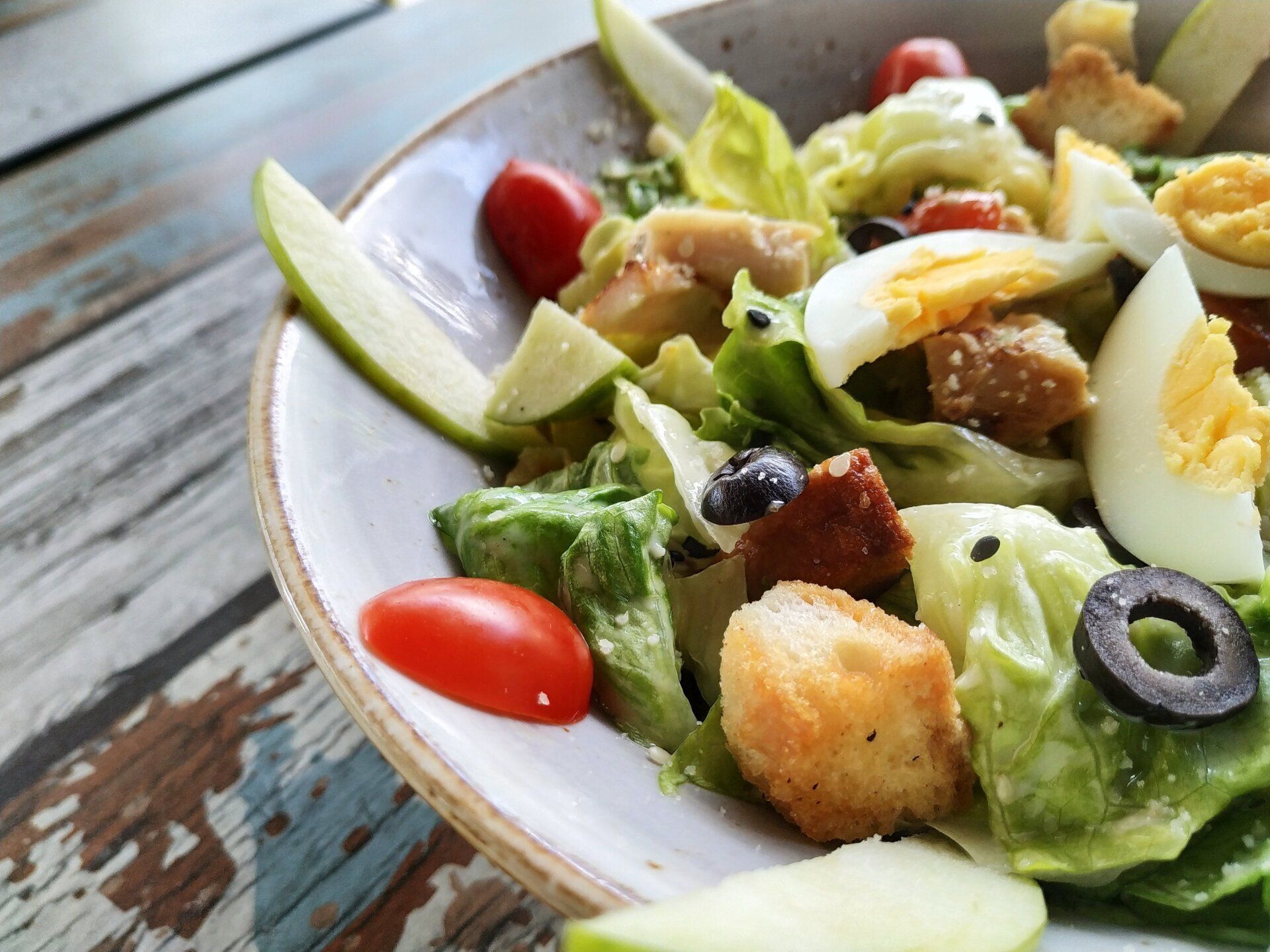Holiday Season Pet Safety
Tips for Sharing a Happy and Healthy Holiday Season With Your Pets

The holidays are a wonderful time of great enjoyment spent with family and friends. It is a special time of festive decorations and foods, which while immensely pleasing, can also bring hidden hazards for our pets. Here are a few suggestions for helping your pets have a healthy and happy holiday season.
Holiday decorating adds to the festivity of the season. Everything tends to get special packaging from our homes and yards, to the holiday gifts. These provide a great source of curiosity and temptations for our pets. Beware of strings, tinsel, ribbons, ornament hooks and small ornaments since these can be easily swallowed by both cats and dogs. Linear objects are especially hazardous since they can become entangled within the intestines, requiring extensive surgery to remove. Extension cords may be chewed on resulting in severe burns and even respiratory distress.
Several decorative holiday plants can be toxic to animals. Toxic signs can range anywhere from vomiting and diarrhea to respiratory distress and convulsions. Holiday plants to be aware of include mistletoe, Amaryllis, and certain lilies. While the poinsettia is not toxic, it can cause severe mouth and stomach irritation. For a more detailed list of plants which can be hazardous to pets visit the national ASPCA website.

Holiday cooking, while one of my favorite parts of the seasonal celebration, can bring with it a whole other set of challenges for our pets. "Dietary indiscretion" is one of the biggest challenges. Care must be taken to ensure dogs do not help themselves to scraps in the trash can, or well meaning family and friends do not "share" treats with our pets. Sudden changes in the diet can irritate the gastrointestinal system. The pancreas is especially sensitive to rich diet changes, and quickly can become overloaded and inflamed, leading to hospitalization. Small bones can splinter or become trapped in the intestines requiring surgical intervention.
Most people are aware that chocolate is toxic to pets, however other baking ingredients need to be monitored also. All chocolate is toxic depending on the amount eaten. Keep in mind the darker the chocolate (especially baking chocolate) the more dangerous for the pet. The sugar substitute Xylitol, commonly found in sugar free treats, is very toxic and requires immediate veterinary care. Certain nuts and raisins should also not be fed to dogs.
As with any happy event there is inherent stress. Our pets are very sensitive to our emotions and can easily become overstressed as well. Provide them with a quiet place to escape from the hustle and bustle of the season, helping to ease their anxiety during all the holiday change. While time feels very limited during the holiday season, giving our pets extra one on one attention will be rewarding to all involved. A final tip is to make sure all pets are always wearing their identification tags, in event of an unexpected dash out the door.

























